SUMMARY
This is AI generated summarization, which may have errors. For context, always refer to the full article.
![[OPINION] Justices are not (his) vassals](https://www.rappler.com/tachyon/2021/05/tl-justices-arent-his-vassals-sq.jpg)
It is often said that joining the Supreme Court is every lawyer’s dream. Accurate or not, there is no dispute that a seat in the highest court of the land is an honor that is earned after decades of hard work. It lies at the pinnacle of the profession. There are other paths – like those of the great deans like Irene Cortes, Father Joaquin Bernas, and Pacifico Agabin, or those of luminaries like the late Senator Jose W. Diokno. But far and large, becoming a “justice” is an exceptional honor.
I reflected on these thoughts while watching a video of the President’s weekly address. As he justified his oft-criticized position on China, he swiveled to former Supreme Court Justice Carpio and said: “Isa ring ugok ito. (Mutters inaudibly.) Supreme Court justice? Pareho man tayo abogado. Gusto mo mag-debate tayo?”
Words fail to capture the moment. It is only by watching that the full impact of his message is understood. In psychology, especially in Filipino psychology (pioneered by Virgilio Enriquez), non-verbal cues are key. The mind tends to process and remember these signals better. That’s why the slight turn of head, and the dismissive sounds the President made before saying “Supreme Court justice,” and after saying it, makes a world of difference. As he himself said, he was speaking to his target demographic – the common man. That’s why he started with “ugok,” a street term for “idiot.” With all these taken together, his message was subtle but, unmistakable – “Supreme Court justice? E ano? Debate tayo.” (That idiot. He is a Supreme Court justice, so what? Debate me.)
A lot has already been written about the President’s bravado and how Justice Carpio exposed it. My concern is the implicit, if not explicit contempt, the President displays for magistrates and their role in a three-branch system of government. Yes, he is angry at Justice Carpio, but the dismissive tone was equally directed to Justice Carpio’s former status as a member of the High Court, and how in the eyes of the President it was no different from any other lawyer. Of course, he knows that technically it’s not true. The President was a fiscal who knows the delicate balance crucial in a judicial system. He just didn’t care. He needed to weaken his opponent Justice Carpio by de-mystifying what he (mistakenly) thought was the source of Carpio’s credibility – “Supreme Court justice.” And the challenge was just to showcase his dominance over this “justice,” fully expecting Justice Carpio would be too disente to accept it.
It may seem conservative but, I believe there is a legitimate difference between those of us in practice and those who were called into the judiciary, especially those at its highest levels. There is also the systemic reason, one that underpins why a justice is inseparable from the functions of that office. It explains the protectiveness of Supreme Court decisions whenever litigants, officials, and even journalists disrespect members of the judiciary. While they lose power when they retire, our judges don’t shed the character. And though we critique their decisions, we can’t have citizens publicly challenging judges to debates or other duels. Yet, the President in his personal anger telegraphs that this is fine. “Supreme Court Justice? Pareho man tayo abogado” is a dog whistle to his base – don’t be awed by these clowns (ugok). Watch me beat this one up.
Of course, no one says lawyers shouldn’t be publicly challenged. We earn our keep that way. But it is not the same for judges. The role of a judge is not personal, it is institutional. We inculcate reverence for them because it is the same reverence that the Rule of Law needs to function. The President has an army. Congress wields the coffers. The Supreme Court? Only moral suasion. It relies on the political branches to effect its edicts. And the President, as a seasoned grassroots politician who wields gutter language as a weapon, knows all this. That turn of head as if to spit just before he mutters “Supreme Court justice?” – show that clip to the man on the street and ask him what it conveys. It was meant to remind the audience of who is really supreme, and how the pinnacle of the legal profession means nothing to him.
The past five years show how the President employs this strategy of a thousand cuts. We have seen how he weakened foes by objectifying them. A line must be drawn however, when he signals that judges are no different from any lawyer just to win an argument. A seat in the highest court in the land is not a commodity. It is an honor earned by wisdom and experience, which only a few are privileged to hold. By signaling that they are commonplace and it’s fine to publicly challenge justices, the President peels away a layer of judicial independence. All because he thought that Justice Carpio’s strength lies in the title. And to drag his opponent down into the mud, he needed to demolish the public’s awe towards those addressed as “justice.”
Which goes into another reason why the gambit shouldn’t be normalized. Dog whistles while politically effective, are unpredictable. Trump used it several times – “very fine people”, “stand tall, stand by” – to telegraph to his base while avoiding accountability. And we all know how that ended. If we are fine with the President dog whistling to his base how he truly sees our justices, we should be prepared for the eventual consequences of that.
It is fortunate that Justice Carpio elegantly turned the President’s tactic against him. When all was said and done, it was the President who became the center of national ridicule. My father used a term in sabong to describe it: patakbuhin. That said, the President’s actuation still begs the question. In his eyes, what has the President turned the judiciary into such that he casually demonstrates derision in a live national address? It takes a different kind of confidence (or perhaps impunity) to signal to the public on TV that Supreme Court justices are no different from other lawyers. They say the constitutional power to appoint is intoxicating. If so, one has never seen a President as “drunk” as this one. Yes, our justices are human. And like all of us, they have gone through personal and professional trials. But no one – President or not – should, at least as long as the Constitution is in effect, openly degrade their position in our democratic order. There are three co-equal branches under our Charter. We elected a president, not a king. And regardless of how he really views them, he needs to be reminded – our justices are not his vassals. – Rappler.com
John Molo is a commercial law litigator who enjoys reading and learning about the Constitution and its intersection with politics. He teaches Constitutional Law at UP Law-BGC, where he also chairs the Political Law Cluster of the Faculty. He is a past Chairman of the IBP Law Journal. He led the team that sued the Aquino administration and invalidated the PDAF.
Voices features opinions from readers of all backgrounds, persuasions, and ages; analyses from advocacy leaders and subject matter experts; and reflections and editorials from Rappler staff.
You may submit pieces for review to opinion@rappler.com.
Add a comment
How does this make you feel?
![[WATCH] Carpio on People’s Initiative: ‘Nothing to do with economic provisions’](https://www.rappler.com/tachyon/2024/02/RetiredJusticeCarpio_Cebu_February202024-1-scaled.jpg?resize=257%2C257&crop=767px%2C0px%2C1372px%2C1372px)
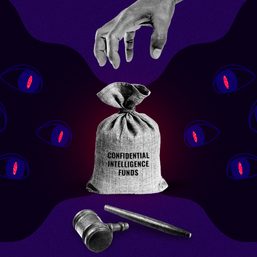
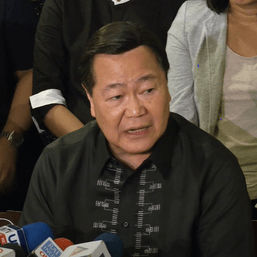
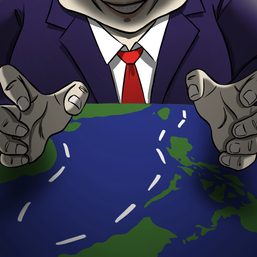
![[WATCH] Carpio on why PH claims over Bajo de Masinloc, Spratlys are ‘strongest’](https://www.rappler.com/tachyon/2023/10/carpio-wps-livestream-ls-2-1.jpg?resize=257%2C257&crop_strategy=attention)
![[OPINION] ‘Some people need killing’](https://www.rappler.com/tachyon/2024/04/tl-some-people-need-killing-04172024.jpg?resize=257%2C257&crop_strategy=attention)
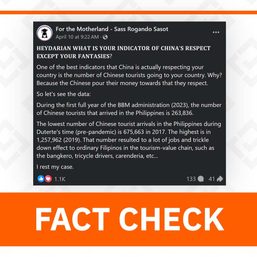
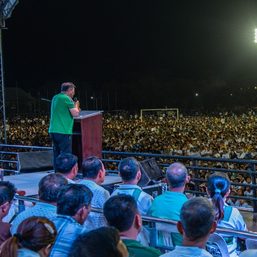


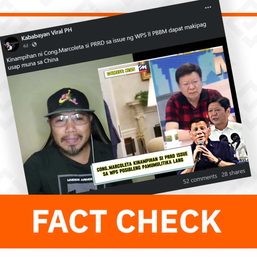
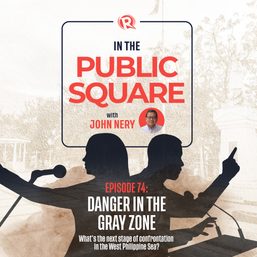



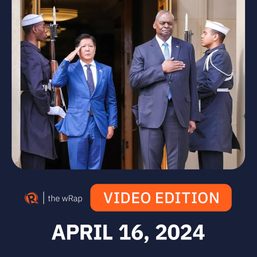
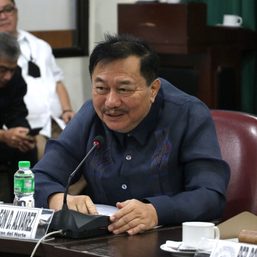
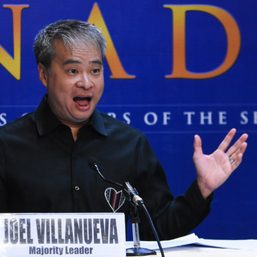
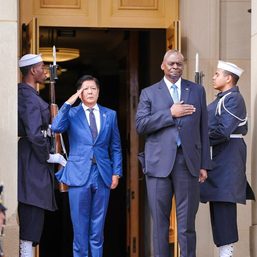
There are no comments yet. Add your comment to start the conversation.